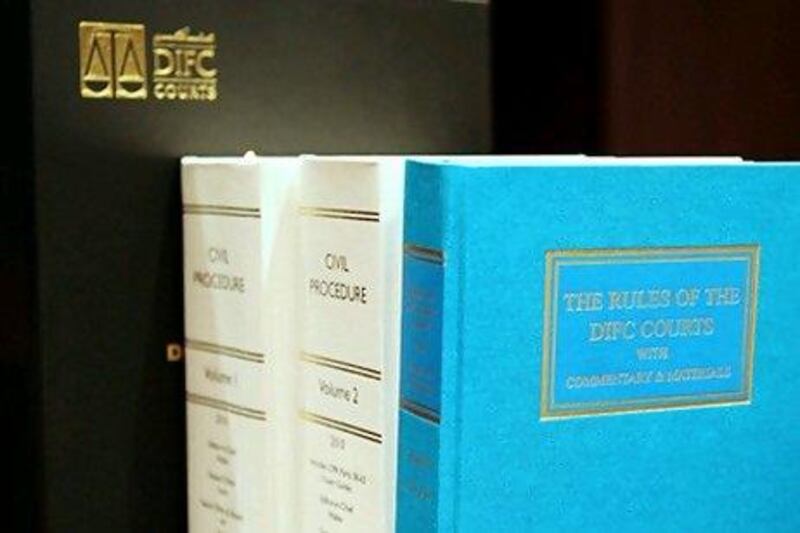The caseload for Dubai International Financial Centre (DIFC) Courts' largest claims court has more than doubled so far this year as more firms rush to get disputes resolved in the free zone.
Officials say the rise is down to more awareness about the courts' capabilities after a rule change in October to widen its remit to include non-DIFC firms. Publicity surrounding a recent high-profile case has also helped attract more interest, they say.
"More people have been made aware about the DIFC Courts when they didn't know about them previously and it has become an option they never contemplated before," said Mark Beer, the DIFC Courts registrar.
The Court of First Instance, which deals with the free zone's largest and most complex cases, has handled seven cases so far this year. That compares with three in the same period last year.
Among its current caseload are two separate cases involving Kuwaiti families suing the Swiss banks UBS and Bank Sarasin. Another is a case involving a firm applying for insolvency.
The Court of First Instance is one of three courts within DIFC Courts, along with the Small Claims Tribunal and the Court of Appeal. It has handled Dh3 billion (US$817 million) of claims during the past three years, with average claims of between Dh30m and Dh35m.
But officials say the profile of DIFC Courts has risen in recent months.
On October 31, Sheikh Mohammed bin Rashid, Vice President of the UAE and Ruler of Dubai, issued a decree extending their jurisdiction. The law significantly expands the reach of the courts by allowing parties without any connection to the DIFC to have their disputes heard there.
The ruling has encouraged many firms to redraft contracts to recognise the DIFC as a jurisdiction for disputes, said Mr Beer.
A recent dispute overseen by the court involving Corinth Pipeworks, a Greek piping supplier, and Barclays Bank has also been significant in generating interest, he said.
Corinth was seeking damages of $24m from the bank for providing allegedly false information about the transfer of funds from a customer to Corinth's bank account.
The Court of First Instance originally ruled it could not handle the dispute because it involved a branch of Barclays in Jebel Ali, outside DIFC. But the Court of Appeal last month overturned the decision and ruled that should a foreign bank have a DIFC branch, the DIFC Courts have jurisdiction over the conduct of that bank's branches outside the free zone.
The case was a "landmark decision" for DIFC Courts, said Mr Beer.
"There are three tests for whether a case can be heard at DIFC," he said. "The first is does the case have anything to do with the DIFC? Secondly, do both parties agree to have the case heard at DIFC?
"Thirdly, even if both parties do not both agree to have the case heard there, does one of the firms have a branch there?"





